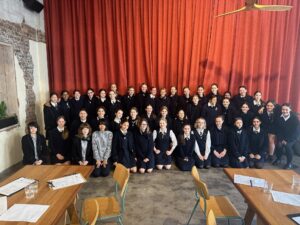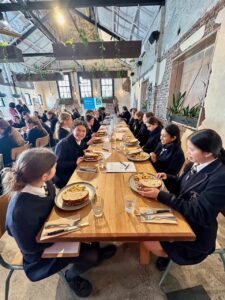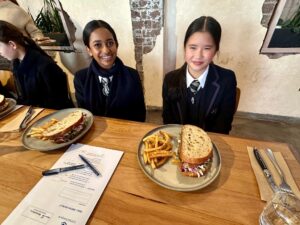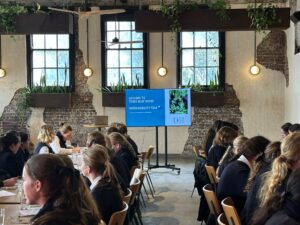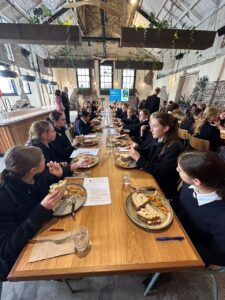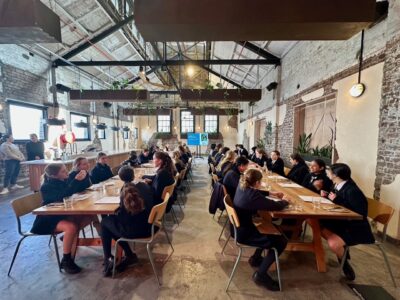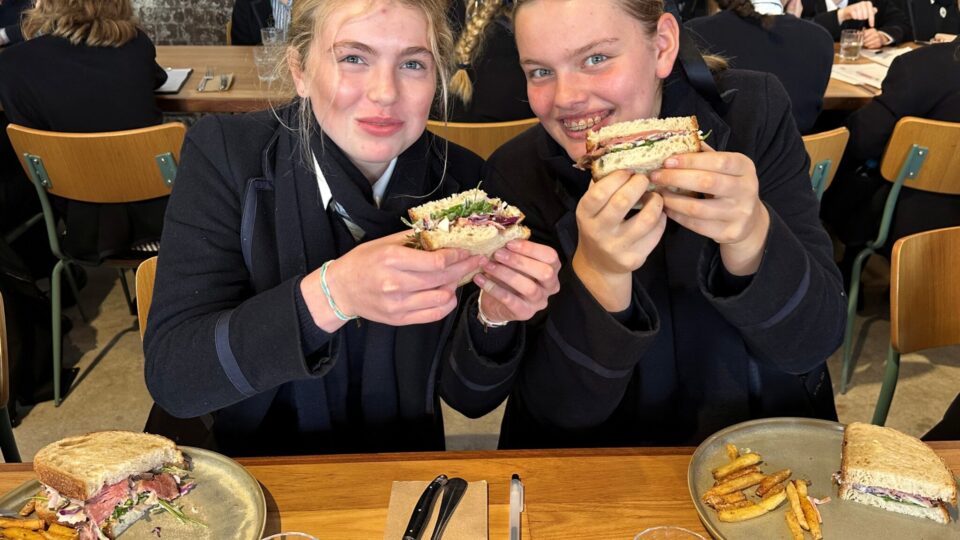
Year 9 Geography Fieldwork to Three Blue Ducks
On Monday 4 August, Year 9 Mandatory Geography students were fortunate to attend the Three Blue Ducks restaurant in Rosebery as part of our investigation into food security and sustainability. We explored how thoughtful choices in agriculture, cooking, and dining can contribute to a healthier planet and a more resilient food system.
One of the standout moments of the day was a presentation by Executive Chef Daniel Cooper, who shared the restaurant’s sustainability journey and their strong environmental values. At the heart of this is an innovative development: Three Blue Ducks is the first restaurant in the world to serve “Sea Fed” beef, a low-emissions steak created by feeding cattle a native red seaweed called Asparagopsis. This seaweed dramatically reduces methane emissions from cattle by up to 67%, representing a significant leap in eco-friendly farming.
The restaurant’s commitment to sustainability goes even further. In addition to working with organisations like Sea Forest, the team at Three Blue Ducks collaborates closely with ethical producers to drive sustainable food innovation. They source free-range meats and free-range organic eggs, cook with fresh, locally grown seasonal produce, including native Australian foods, and prioritise minimising waste in their kitchen operations. Their menus are carefully designed to maximise usage of the whole ingredient. Creative techniques, such as dehydrating herb stalks to make their signature seasonings, dehydrating orange peel to make jams and cakes, using fruit cores to make their vinegars, composting leftover food scraps, and using eco-friendly cleaning products such as eWater, help minimise their environmental impact.
To add to our experience, we got to enjoy an incredible lunch, sampling the “Sea Fed” beef in a sandwich. The meal wasn’t just a treat; it was a great example of how food can be both delicious and environmentally friendly! It also allowed us to see that there are things we can do to try and reduce our global footprint to the best of our abilities, whether it be trying to buy locally grown, seasonal food, reducing food waste and single use plastics, composting our leftovers or using eco-friendly cleaning products. The day concluded with a Q&A session, allowing us to craft some ideas for our assignment on creating a sustainable menu and restaurant concept. These reflections will help deepen our understanding of food systems and sustainability as we continue our Semester 2 Geography course.
Adelaide Gilpin
Year 9 student


